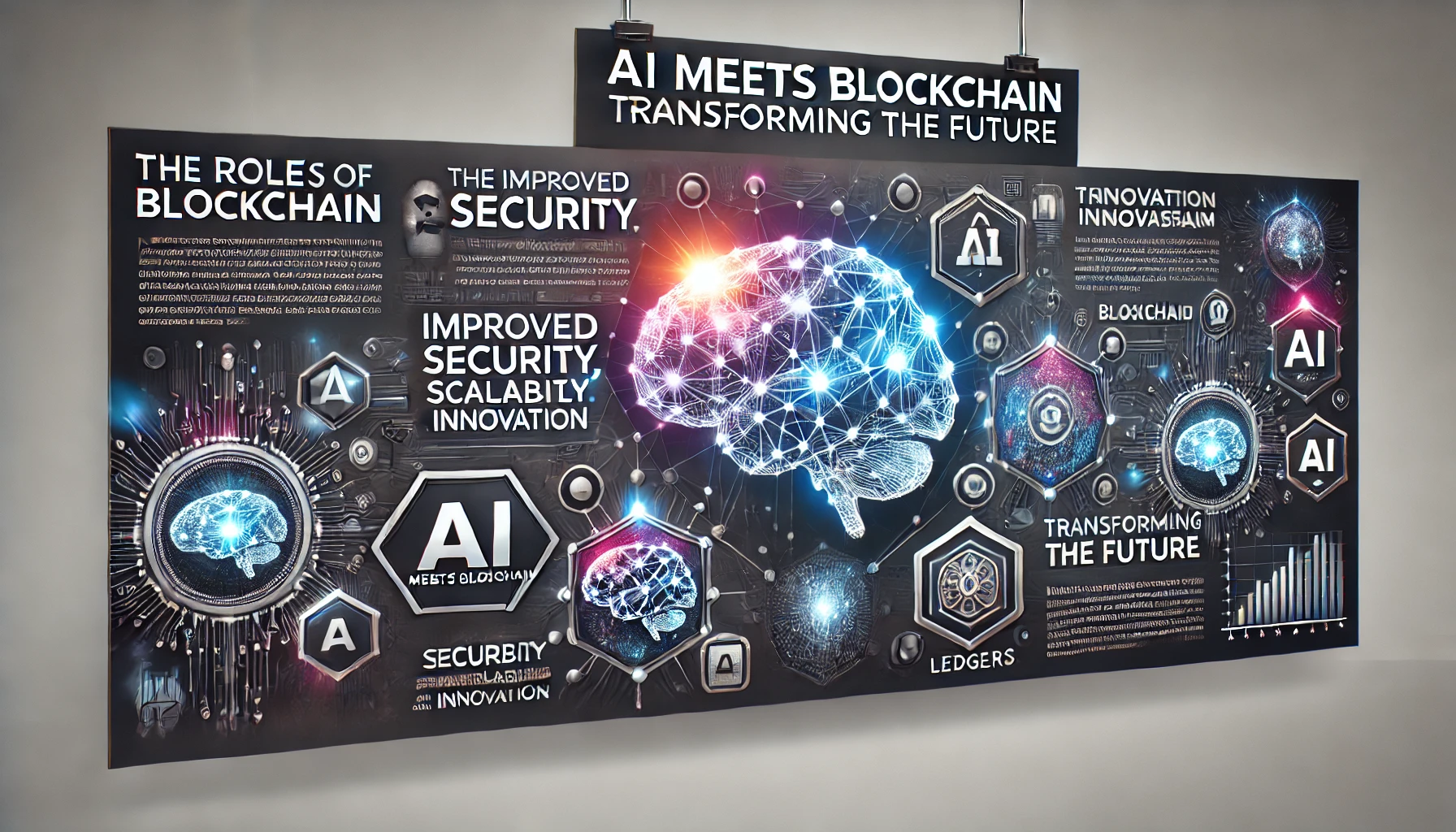The role of AI in blockchain is reshaping industries by merging the power of artificial intelligence with the transparency and security of blockchain technology. This combination enhances data integrity, optimizes processes, and unlocks new levels of efficiency. As AI improves decision-making and blockchain secures data transactions, their integration is creating transformative opportunities across finance, healthcare, and supply chain management.
Introduction
Blockchain, a decentralized ledger system, and AI, the simulation of human intelligence by machines, have become buzzwords in the tech world. Each technology solves unique challenges: blockchain ensures transparency and immutability, while AI excels in data analysis and decision-making. When combined, they complement each other, leading to a synergy that is greater than the sum of their parts.
Understanding AI and Blockchain: The Basics
Before diving into their integration, it’s important to understand the core principles of these technologies:
- Blockchain: A distributed database that records transactions across multiple nodes in a secure and immutable manner.
- AI: A field of computer science focused on creating intelligent systems capable of learning, reasoning, and adapting.
Both technologies are data-driven, but they operate differently. Blockchain stores and secures data, while AI interprets and extracts value from it.
The Intersection of AI and Blockchain
The integration of AI and blockchain creates a powerful combination by leveraging the strengths of both.
How They Complement Each Other:
- AI enhances decision-making in blockchain systems by analyzing large datasets.
- Blockchain provides a secure and transparent framework for AI processes.
This collaboration addresses limitations inherent in both technologies, such as blockchain’s scalability issues and AI’s data security concerns.
Enhancing Data Security and Privacy
One of the most significant contributions of blockchain is its ability to secure data. AI systems rely heavily on data for training and decision-making, but this data must be accurate and trustworthy.
How Blockchain Secures AI:
- Ensures the integrity of datasets through immutability.
- Protects user privacy with decentralized data storage.
- Verifies data provenance, ensuring its authenticity.
AI, in turn, strengthens blockchain security by detecting potential threats and predicting vulnerabilities using advanced algorithms.
Improving Scalability and Efficiency
Blockchain’s scalability challenges, such as high transaction times and costs, can be mitigated with AI.
AI Contributions to Blockchain Scalability:
- Predictive Analysis: AI forecasts network congestion and optimizes resource allocation.
- Energy Optimization: AI algorithms reduce energy consumption in blockchain processes like mining.
- Smart Contract Verification: AI automates the testing of smart contracts for errors, enhancing efficiency.
This partnership enables blockchain to handle larger volumes of data without compromising performance.
Fostering Trust and Transparency
Blockchain’s transparency ensures that all transactions are verifiable, while AI’s decision-making processes can sometimes appear opaque due to their complexity. Together, they create systems that are both transparent and trustworthy.
Examples:
- Blockchain logs AI decisions for auditability.
- AI interprets blockchain data for better insights.
This combination is especially valuable in industries requiring high levels of accountability, such as finance and healthcare.
Applications of AI and Blockchain Integration
The collaboration of AI and blockchain is already driving innovation across various sectors:
1. Finance and Banking
- Fraud detection using AI-powered algorithms on blockchain-verified transactions.
- Automated credit scoring with enhanced data integrity.
2. Supply Chain Management
- AI optimizes logistics, while blockchain ensures product traceability.
- Counterfeit detection through verified data.
3. Healthcare
- AI analyzes patient data stored securely on blockchain networks.
- Blockchain ensures the privacy of medical records during AI processing.
4. Smart Cities
- AI-driven decision-making combined with blockchain’s secure IoT data sharing.
- Improved energy management and waste reduction systems.
AI-Driven Smart Contracts
Smart contracts, self-executing agreements on blockchain platforms, benefit significantly from AI.
AI Enhancements:
- Dynamic adaptability: AI updates contracts based on real-time data.
- Error detection: AI identifies vulnerabilities in contract code.
- Predictive execution: AI ensures smooth contract execution by analyzing potential issues.
These advancements make smart contracts more robust and practical.
Challenges in AI and Blockchain Integration
While the potential is immense, integrating AI and blockchain is not without its challenges:
- Data Complexity: Blockchain data structures can be cumbersome for AI algorithms to process efficiently.
- Resource Intensity: Both technologies demand significant computational power.
- Standardization Issues: The lack of unified protocols complicates integration efforts.
Overcoming these challenges requires innovation and collaboration between industry leaders and researchers.
The Future of AI and Blockchain
The convergence of AI and blockchain is poised to revolutionize multiple industries:
Emerging Trends:
- Decentralized AI marketplaces for buying and selling AI models.
- Enhanced cybersecurity with AI monitoring blockchain networks.
- Autonomous systems combining AI decision-making with blockchain transparency.
As these technologies mature, their integration will become more seamless, opening the door to unprecedented possibilities.
FAQs
AI enhances blockchain by improving scalability, automating processes, and analyzing blockchain data for better decision-making.
Yes, blockchain ensures data security, transparency, and provenance, providing reliable datasets for AI algorithms.
Finance, healthcare, supply chain management, and smart cities are among the industries benefiting from their convergence.
Challenges include computational demands, data complexity, and the lack of standardized protocols.
AI enhances smart contracts by automating updates, detecting errors, and ensuring efficient execution.
While not strictly necessary, AI significantly improves scalability by optimizing resource allocation and transaction processing
Conclusion
The integration of AI and blockchain represents a technological symbiosis that is greater than the sum of its parts. By addressing each other’s limitations and amplifying their strengths, these technologies are unlocking new levels of innovation, security, and efficiency. As the partnership between AI and blockchain deepens, its transformative potential will continue to shape the future of industries worldwide.



